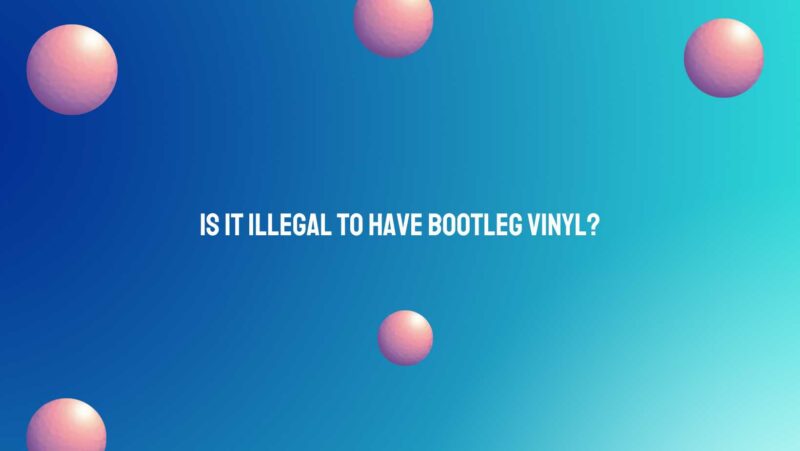The vinyl record resurgence has sparked interest not only in legitimate releases but also in bootleg vinyl records. These unofficial, unauthorized pressings of albums, live performances, and rare recordings have carved out a unique niche within the music collecting community. However, the legal and ethical status of owning bootleg vinyl is a topic that raises questions and concerns among collectors and enthusiasts alike. In this comprehensive article, we will explore the various aspects of owning bootleg vinyl, including its legality, ethical considerations, and potential consequences.
Understanding Bootleg Vinyl Records
Bootleg vinyl records, often referred to simply as “bootlegs,” are unauthorized copies or pressings of audio recordings, typically of live concerts, studio outtakes, or unreleased tracks. These recordings are not officially licensed by the artist, record label, or copyright holder, and they are usually produced and distributed without their consent. Bootlegs have been a part of music culture for decades, with some of the most famous ones capturing legendary performances and unreleased material from iconic artists.
The Legal Status of Owning Bootleg Vinyl
- Copyright Laws: The legal status of owning bootleg vinyl records primarily hinges on copyright laws. Copyright law protects the intellectual property rights of creators and copyright holders. Owning bootlegs can be seen as possessing unauthorized copies of copyrighted material, which could potentially infringe upon the rights of the copyright holders.
- Personal Use: Some argue that owning bootlegs for personal use may not be strictly illegal, especially if the collector has purchased them unknowingly or for historical preservation. However, this is a legal gray area, and it’s essential to consider the specific copyright laws in your jurisdiction.
- Reselling and Distribution: Engaging in the sale or distribution of bootleg vinyl records is more likely to raise legal issues. Selling bootlegs can constitute copyright infringement and may lead to legal consequences.
- Fair Use: In some cases, collectors may claim that their ownership of bootlegs falls under “fair use,” a legal doctrine that permits limited use of copyrighted material without permission for purposes such as criticism, commentary, or research. However, successfully invoking fair use can be challenging and is often determined on a case-by-case basis.
Ethical Considerations
Beyond the legal aspects, owning bootleg vinyl records also raises ethical questions:
- Supporting Artists: Purchasing bootlegs may divert financial support away from artists and copyright holders who deserve compensation for their work.
- Artistic Integrity: Bootlegs may contain recordings that were never intended for public release, potentially infringing on an artist’s artistic intent and creative control.
- Quality and Authenticity: Bootleg vinyl records may offer subpar sound quality compared to official releases, and collectors may unknowingly pay a premium for inferior copies.
- Preservation vs. Exploitation: Some argue that owning bootlegs can be a form of preserving musical history, capturing rare or unreleased material. However, this preservation must be balanced with ethical concerns about exploiting artists’ work without their consent.
Conclusion
The question of whether it is illegal to own bootleg vinyl records is a nuanced one, with no clear-cut answer. The legal status of owning bootlegs can vary depending on factors like jurisdiction, intended use, and the specific circumstances of ownership.
While some collectors may view bootlegs as a way to access rare or historically significant recordings, others argue that they raise important ethical and legal questions, particularly in terms of supporting artists and respecting copyright law.
Ultimately, individuals who choose to own bootleg vinyl records should be aware of the legal and ethical considerations involved. It is essential to stay informed about copyright laws in your region, make ethical purchasing decisions, and respect the rights of artists and copyright holders, even within the complex world of bootleg recordings.


